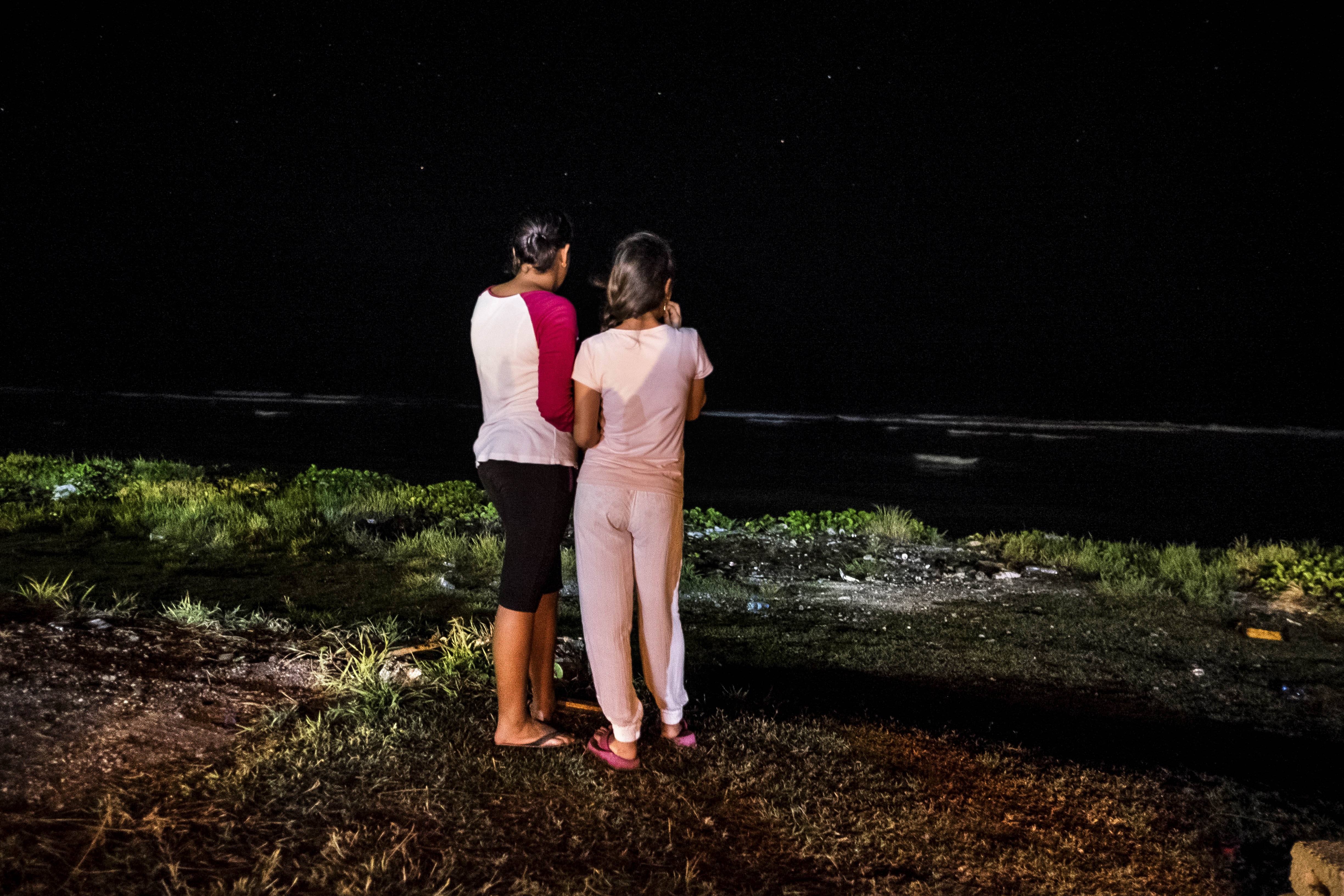Refugees in PNG travel the road to self-reliance
Refugees in PNG travel the road to self-reliance

EAST AWIN, Papua New Guinea, March 12 (UNHCR) - Hundreds of refugees in western Papua New Guinea (PNG) could soon take a big step towards self-reliance thanks to provincial government plans to upgrade a vital road.
Surrounded by a vast tropical rainforest in an area of heavy annual rainfall, the refugee settlement at East Awin is located on the 110-kilometre-long dirt road linking the town of Nomad to Kiunga, a mining centre close to the border with Indonesia's Papua province.
The jungle highway is a key artery for East Awin's community of 2,500 Papuan refugees, who use it to sell their produce in the towns of Kiunga and Tabubil, send their children to secondary school, ride to work and access medical facilities.
"The road is important for our survival," said Mathias Baam, who fled to PNG 23 years ago. He and other refugee leaders believe they can become self sufficient, but say their goal has been difficult to achieve because of a lack of transport and the state of the road, which is virtually impassable in the wet season.
The refugees want help - something more substantial than the quick fix projects carried out by logging and oil exploration companies when they move in and out of the area or the band-aid repairs conducted by female refugees. They might not have to wait much longer.
Fortunately for the Papuans in East Awin, the West Province government has put a priority on road and infrastructure development in 2008 at a time when the challenges faced by the broader local community mirror those of the refugees. Funding is available for upgrading several roads, including the Kiunga-Nomad highway, and work could begin in the coming months.
The government action coincides with stepped up efforts by UNHCR and its partners to move the refugee population in East Awin onto a firmer development footing, and focus is zeroing in on the road. "These refugees have now been here for over 20 years and its time we pooled our efforts to help them integrate more fully into PNG life," said Wallaya Pura, UNHCR's representative in PNG.
The need to boost self-reliance opportunities and include the refugees in development plans for Western Province was a key theme of a conference convened by UNHCR in the PNG capital, Port Moresby, late last year. Participants, including donors, development agencies, church groups and government agencies, agreed that fixing the road was a priority.
"Good road access will solve lots of problems. Once it is in place, there is definitely the capacity with the group of refugees themselves to make great strides towards self-reliance," said Bishop Gilles Côté, whose Catholic diocese of Daru-Kiunga provides health, education and other services to refugees and locals in Western Province.
Provincial Administrator Nelson Hungrabos said an upgrade of the Kiunga-Nomad road would not only open up economic opportunities, including increased agricultural production in the Nomad region, but also provide better access to education and health facilities. "We are looking at that as a key road," he said.
"Western Province is a very big land mass, but in terms of population density it is sparsely populated, making the provision of services very costly. Especially when we don't have the appropriate road network," Hungrabos noted, adding that "the refugee camp is along the way, so it is within the priority of the government."
UNHCR has welcomed the government plans. "Everyone agrees we need this critical step to make self-reliance a truly viable option for the refugee community," Representative Pura said. "But it will also need to be complemented by other health, education, livelihood and other programmes to help integrate this long-standing refugee population into local development plans," she concluded.

The PNG government designated East Awin a refugee settlement area in 1987, following an influx of indigenous Papuans fleeing an Indonesian armed forces offensive against separatists.
Since the establishment of the settlement, some 7,000 refugees have been received and processed at East Awin. About 60 percent of the current population of 2,500 were born there. Others have moved on to other parts of PNG after obtaining residency permits, or returned to their villages in Indonesia.
By Ariane Rummery in East Awin, Papua New Guinea







